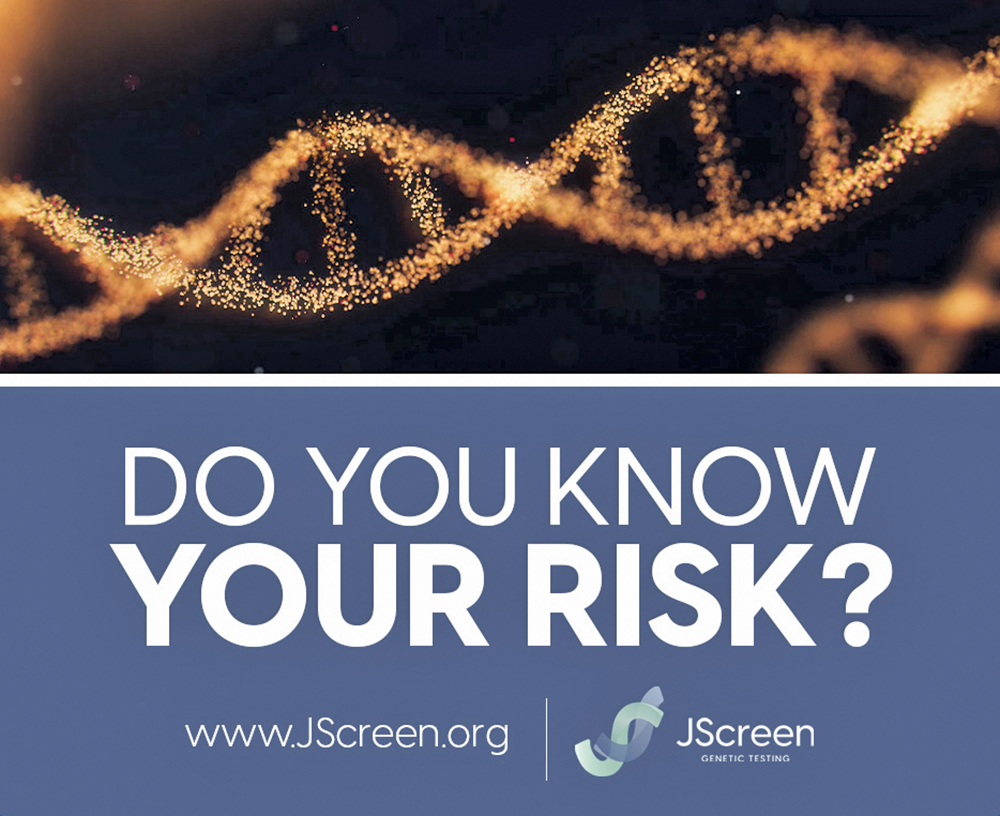The week-long program will include timely information and resources to raise awareness of the importance of genetic screening.

(Courtesy of JScreen) JScreen, a national nonprofit public health initiative dedicated to preventing genetic diseases, has announced the fifth annual Jewish Genetic Screening Awareness Week (JGSAW), which will take place from Feb. 4-10. Initiated in 2020 with organizational partners across the nation, JGSAW serves to educate the community about the importance of screening for genetic diseases and to raise awareness about testing resources.
Jewish Genetic Screening Awareness Week was officially recognized in the morning orders by the Georgia State Legislature according to the Proclamation Declaring Jewish Genetic Screening Awareness Week. The goal of JGSAW is to help ensure the health of individuals and their future families through education and genetic testing.
Dr. Janis Finer of Tulsa, Oklahoma knows the importance of getting tested. While she had no known family history of breast or ovarian cancer, her daughter Dina Finer Gluck of Nashville, Tennessee was offered testing as part of a routine doctor’s visit. They were shocked when Dina tested positive for a mutation in a BRCA gene at the age of 34. A BRCA mutation puts an individual at greater risk for breast, ovarian, pancreatic and prostate cancer. Men and women with Ashkenazi Jewish ancestry are at 10 times greater risk to carry a mutation in a BRCA gene than the general population, even without a family history of related cancers.
The good news is there are actionable steps a person can take if they test positive for certain cancer gene mutations, including BRCA. “It’s a blessing to know what you can do when you face a high risk for cancer but don’t actually have it,” stated Dina. Although she chose to undergo risk-reducing surgery with a double mastectomy, other women who test positive for a BRCA mutation may choose additional surveillance with breast MRIs in addition to mammograms. “The BRCA genes were very low on my list of concerns, but after I found I was BRCA positive, I made the choice to have surgery as I found I had an up to 80% lifetime risk of breast cancer and 40-60% chance of ovarian cancer,” said Dina. “I will thrive despite my genetic predisposition and so can you.”
Now in its 11th year, JScreen makes genetic testing simple, accessible and affordable with its easy-to-use at-home saliva kits. Many people are familiar with JScreen’s reproductive testing that gives prospective parents a deep understanding of their risk of having a child with a genetic disease. If a couple’s risk is elevated, genetic counselors privately address their results by phone or video teleconference and provide options to help them plan for the health of their future children. JScreen’s cancer genetic test is a newer addition and alerts a person to their risk for hereditary cancer so they can be proactive about their own health. By providing convenient at-home access to cutting-edge genetic testing technology, patient education and genetic counseling services, JScreen strives to prevent devastating genetic diseases and ensure a healthy future for all.
“Preventing genetic diseases and hereditary cancer is our mission. We want to ensure generations of healthy children and adults. ‘Get Tested’ is our message because the more people we educate and test, the closer we are to achieving our goal,” said Karen Arnovitz Grinzaid, executive director of JScreen.
Learn more and register for testing at www.jscreen.org.












